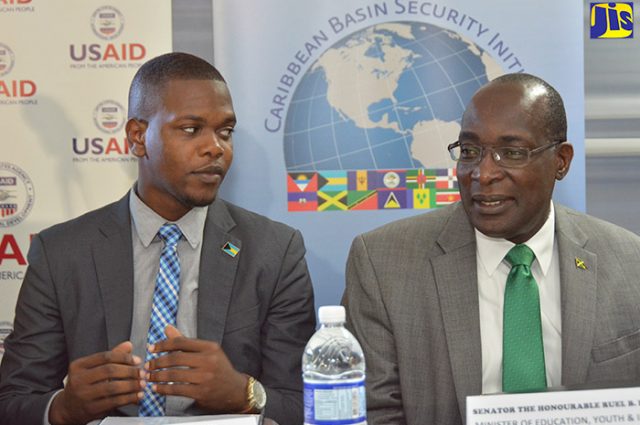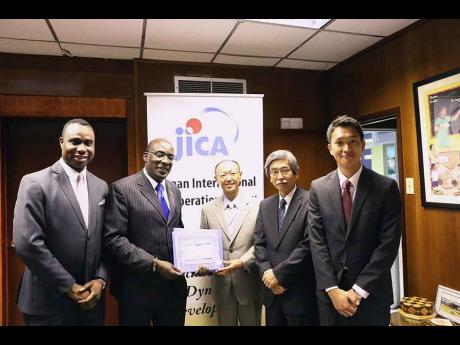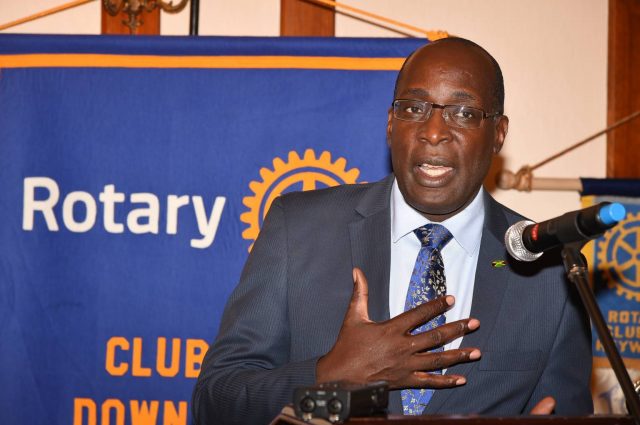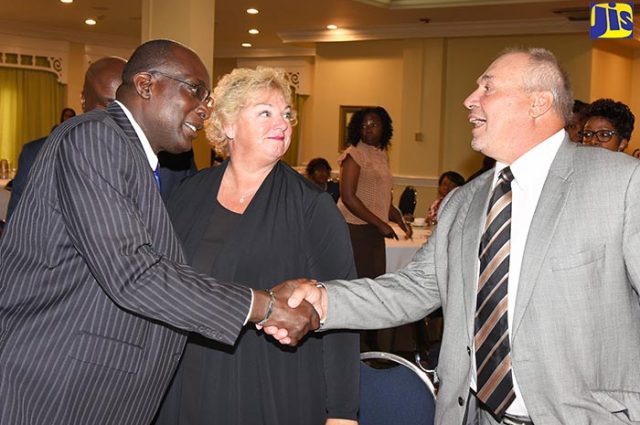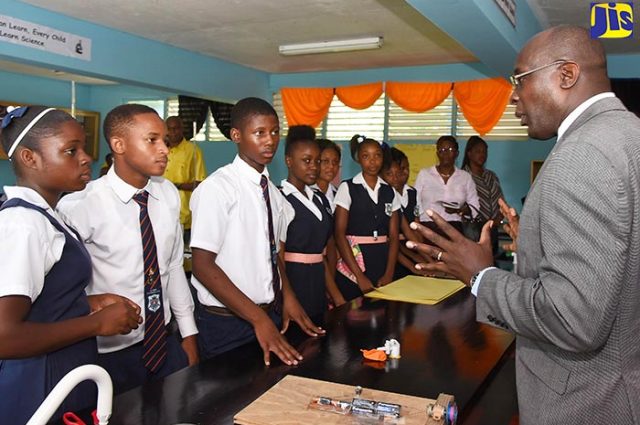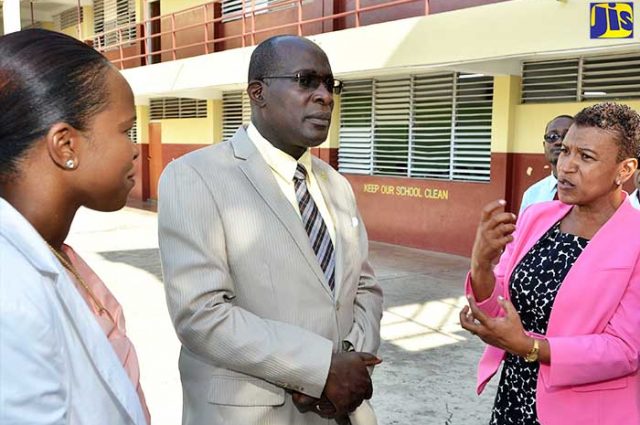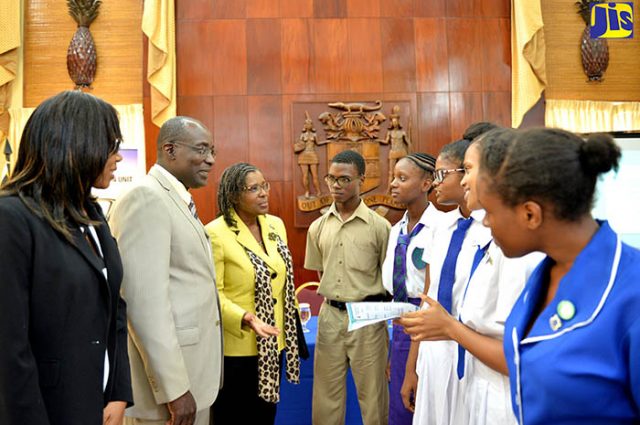GLEANER: “One of the challenges I had when teaching children how to read was that there was a lack of concentration,” recalled Lena Gouldbourne, a retired teacher. “They were not interested. They preferred to watch TV and play video games.”
Yes, Jamaicans still read, but many things get in the way in the ever-evolving pace of life in the 21st century. It’s a fast-paced world and everyone and everything is constantly on the move.
One might not find enough time for reading, which is why there are audio books to tell you a story and programmes to check written work. Maybe people are beginning to take knowing how to read for granted, and this mindset, in turn, is taken up by children.
Many people put the importance of learning how to read on the back-burner like the forgettable relative and focus on English and the sciences. But, no one can do all without that one.
“Reading maketh a full man,” it is said. But, what does this phrase mean? Does it mean that no man can be called a man unless he knows how to read? Or maybe it means that with the ability to read, a man is exposed to the wide world and there are no limits.
It is continuously said that being able to read almost guarantees a person’s success, and the earlier he/she starts, the better. Reading has its benefits such as helping to develop a young reader’s mind and setting him up for success later on in his future. The individual would be able to comprehend various subjects.
“Teach children how to read as early as possible,” Gouldbourne said. “They grasp things easier and faster, and they will hold on to what they’ve learnt.”
Of course, they won’t be able to read Dickens when they are toddlers, but reading to young children on a regular basis familiarises them with words.
Read To Your Children
Listening to stories exposes children to new words, building their vocabulary, improving their comprehension skills, creating and building their imagination, not to mention introducing them to different cultures.
Setting aside a time to read such as before bed or on a Sunday afternoon will allow your child to be comfortable about the idea of reading and alleviate the anxiety that comes with reading something new.
“Bring home books that they would be interested in. Ask them what the story was about and what they understand,” Gouldbourne encouraged. “Be interested in what they are saying. it will make them feel good.”
According to Dr J. Richard Gentry in Psychology Today, children who get early literacy exposure with positive speech interactions have an advantage by age four over children who do not get this exposure.
“If a child doesn’t know how to read by age four or five, it’s going to be difficult to get them to read. They will lack interest in it,” it said.
When asked about modern technology and its impact on reading, Gouldbourne said that she wasn’t fond of children having access to gadgets all the time.
“Technology has its advantages, but it has disadvantages as well,” she said. “Learning tablets and gadgets can be helpful, but other tablets give children access to games and videos, and this is very distracting. If you give them the tablets for reading time,” she continued, “they will use the time to do something else. They need supervision during this time.”
Reading is as important as any daily function. No one has ever said, “Why am I learning to read? I won’t need it in the future.” It’s a necessity for everyone. One must be able to read to get an education, to get a job, even to carry out daily business. in banks or wholesales, one has to read to fill out and sign forms, and read labels. There is no escaping it. it is a must.
Unfortunately, the playing field is not equal. Many people do not get the opportunity to learn or the opportunity to expand on what they have learnt. People who are unable to read are at a huge disadvantage, as without it, they are left behind and are unable to make an adequate contribution to society.
“During reading sessions, everyone did not get a chance to read aloud. This was done to ensure that they pronounced words properly, understood what they were reading, and built their confidence to become fluent and frequent readers,” Gouldbourne explained.
“A lot of students missed school regularly, so when they came back, they were left behind on the reading, and I was able to help them. The basic school classes had 25 to 30 children. I wasn’t able to give each child individual attention.”
According to an article on UNESCO’s website, ‘Literacy’, at least 750 million people still cannot read and write and 250 million children are failing to acquire basic literacy skills worldwide.
In the article ‘Reading, writing, worrying JFLL targets 235,000 illiterate Jamaicans’, published in The Gleaner in January 2016, roughly 235,000 Jamaicans are said to be unable to read.
Slow At Understanding
For some children, however, it may not be so easy for them to learn to read. There are other challenges many of people face when learning to read. Some children get frustrated because they are unable to pronounce the words or understand phonemes and so are discouraged from continuing. One challenge may be that the learner struggles with dyslexia, and others are slow at understanding what they are reading.
“When I used to teach, my students were influenced by the people around them,” Gouldbourne said.
“Children mimic how the people around them speak, the parents, especially, and the people in their communities. it affects the way they pronounce words. So when they would come to me, they would be saying the wrong things.” Gouldbourne continued, “this would frustrate them and they didn’t want to continue.
“Some letters and combinations of letters were challenging for them. They couldn’t pronounce the letters “u” or “h” in certain words. It was difficult for them to sound “th” or “ch”. these were difficult habits to break.”
Many things come in to play when learning how to read and teaching people how to read. With everything there is hardship, but this is definitely not a can-live-without-it situation. To diminish the challenges of illiteracy, Gouldbourne has a few suggestions.
“Classes should be made smaller, especially basic school classes,” she suggested. “The education ministry should make the classrooms more attractive for the students and get special-ed teachers, ones who love what they are doing.”
Her idea of having community-based reading sessions for children was inspiring, organising as well as her suggestion of parents and guardians workshops to help them on how to motivate their children to read and choose suitable reading material for them.
[email protected]


